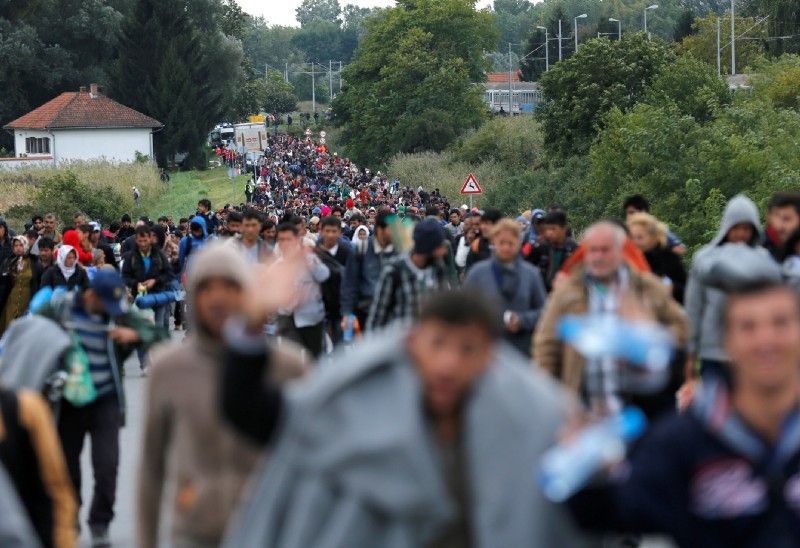Last Friday, we noted that the number of asylum seekers entering Germany fell from 890,000 in 2015 to 186,000 in 2017. That’s still a big number, and absorbing all these new citizens won’t be easy.
But consider that in 2015, the year it accepted nearly 900,000 migrants, Germany replaced Japan as the country with the world’s lowest birthrate. Migrants can do the work and pay the taxes that will help support pensions and benefits for older Germans in years to come. In short, countries with shrinking populations have a clear incentive to welcome new citizens.
What about other countries with shrinking populations, those where deaths outnumber births? The ten countries expected to lose the most citizens between now and 2050 are all in Eastern Europe, despite intense EU pressure on member states to accept a number that’s in keeping with their population size. Country #11 is Japan.
So how many immigrants have Poland, Hungary, and Japan admitted recently? As part of an EU relocation scheme, Poland and Hungary have welcomed exactly zero refugees who’ve entered Europe since 2015. Japan accepted 28 refugees in 2016 and three in the first half of 2017. Looks like the governments of these countries are worried more about cultural change and political pressure than about future economic challenges.
